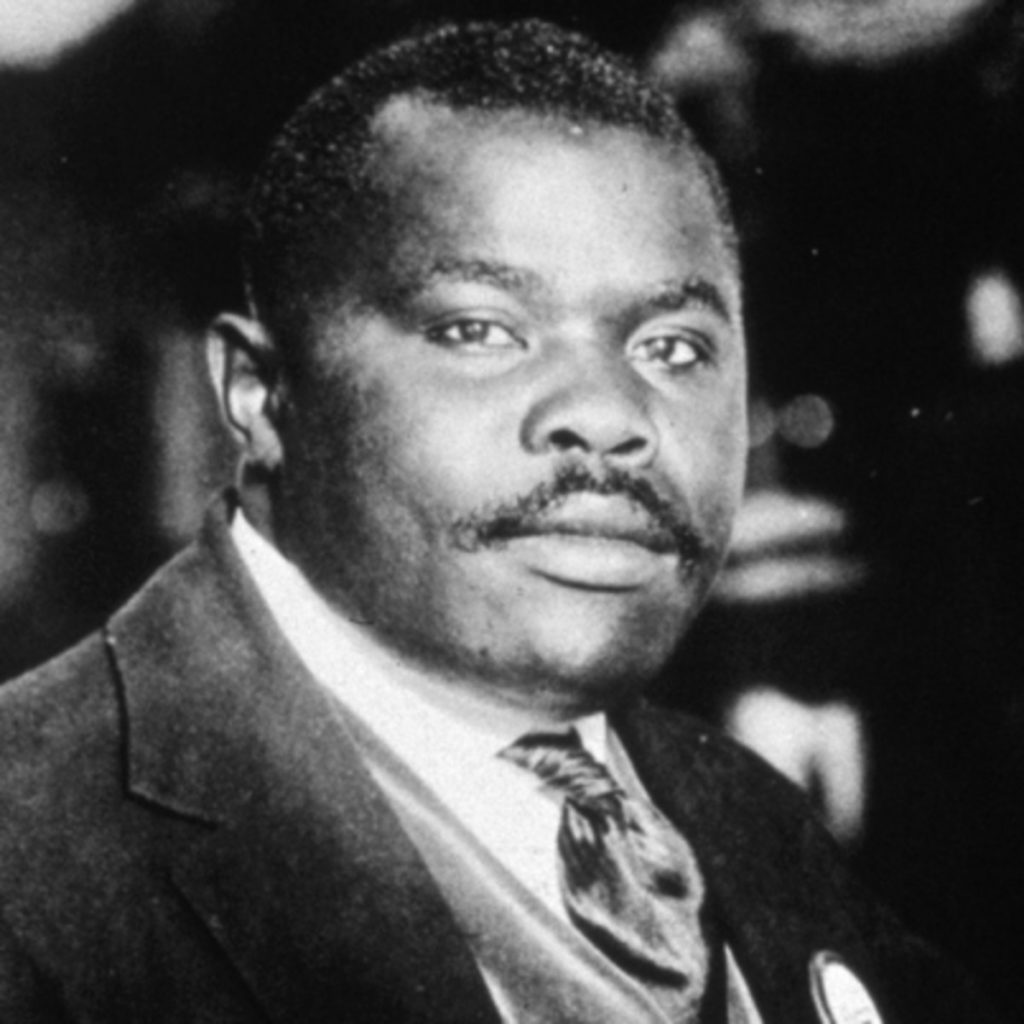
They never called his name, but that he was being referenced was implicit in the fact that the word Negro became politically incorrect after his untimely departure from the United States of America.
The word ‘Black’ supplanted ‘Negro’ when the energy of his movement waned. (History www.history.com)
Based on the time-line, it would be fair to say that this statement was an indirect mention of the Universal Negro Improvement Association African Communities League (UNIA ACL), founded in 1914 in Kingston, Jamaica by the Right Excellent Marcus Mosiah Garvey, now a National Hero of Jamaica.
Our inability to unite, was to Marcus Garvey’s mind what retarded the progress of the black race more than anything else, and the source of this retardation hangs on the word ‘Negro’. Garvey in his wisdom foresaw that in time, white foreigners who had appropriated lands in Africa and planted themselves there would have progeny calling themselves ‘Africans’. He knew also that the word ‘Negro’ could be applied only to people of the melinated race. Today, however, nobody wants to be a ‘Negro’. A word that was perfectly acceptable during his time.
One of Garvey’s chief nemesis, arch-rival and public enemy, W. E. B. DuBois, argued that the term was “etymologically and phonetically” preferable to coloured or “various circumlocutions.” The damage was already done to this word, as the turning point came when Stokely Carmichael (aka Kwame Ture), coined the phrase ‘black power’ at a 1966 rally in Mississippi. In his speeches and in his landmark book, Black Power: The Politics of Liberation in America (1967), he persuasively argued that the term ‘negro’ implied black inferiority.
Beginning in the late 1940s through to the 1960s, the civil rights movement was organized by black Americans to end racial discrimination and gain equal rights under the law. Kwame Ture won the day and the word ‘Negro’ started its decline. By the mid-1980s it became totally uncouth to use the term.
Garvey died in 1940 and never knew that the word ‘Black’ supplanted ‘Negro’ when the energy of his movement, the UNIA, dissipated.
Although Garvey received very little respect from some of the influential blacks of his time, who saw themselves as being intellectually superior to him, he was a very practical and intelligent leader.
Garvey believed that ‘power’ is the only argument that satisfies man and he stated this very clearly when he said “Except the individual, race or nation will be exclusive, it means that that individual, race or nation will be bound by the will of the other race who possesses this great qualification… Hence it is advisable for the Negro to get power of every kind. POWER (his emphasis) in education, science, industry, politics and higher government. That kind of power will stand out signally, so that other races and nations can see, if they will not see, FEEL.”
No leader is perfect, and Garvey was bound to be opposed sooner or later for one main reason — his philosophy and opinions always aroused hostility. Garvey’s philosophy and mission that distinguished him from most ‘freedom fighters’ was their fruitfulness. He was criticized for his failings, but he was effective. Such was his success and so numerous were his followers while the influence of the black intellectuals of the day was declining. He was changing lives that society itself began to reflect his ideas, even as some of his enemies mobilized against him.
Garvey had no time to join protest-marches, he did not beg for donations, ask for charity, or depend on the white system’s benevolence in order to be independent and self-sufficient. He created employment for thousands of black people at home (Jamaica) and abroad. He accomplished this by raising capital through a method that is now referred to as ‘crowd-funding’.
He invited his millions of UNIA members to buy shares and from this pool of funds he capitalized projects such as purchasing a fleet of ships known as the Black Star Line Enterprise.
“From as early as 1919 he had established the Negro Factories Corporation and offered stocks mainly to black people who were members of the UNIA. He wanted to produce everything that a nation needed, so that black people the world over could completely rely on their own efforts. At one time the corporation operated three grocery stores, two restaurants, a printing plant, a steam laundry and owned several buildings and trucks in New York City alone.” Too black to succeed: The FINSAC Experience, Dixon 2019
Garvey was able to accomplish all this before technology in social media was as advanced as it is today.
Garvey and others assert that the only satisfactory and permanent solution to the problem of black-white relations is the separation of black people from the dominant white majority.
The organizers of the Black Lives Matter Movement today could benefit from the assertion of Marcus Garvey and others that without ‘power’ black people’s problems can never be satisfactorily resolved. That black communities in places like Tulsa, Oklahoma were so successful, was mainly because black people had separated themselves and independently supported one another and were therefore able to build wealthy neighbourhoods and their own Black Wall Street.
During the time of the Haitian Revolution this saying was very popular among Toussaint L’Overture and his army of well-trained fighters and military strategists; “If a man gives you freedom, it is not freedom; freedom is something you have to take for yourself.” Haiti fought the French army and gave them a proper beating and took their own freedom
As stated earlier, black people were forced to unite and depend on themselves, as there were no ‘gifts’ such as Affirmative Action to lull them back to sleep and to make them believe that they were ‘free at last’ and that they had overcome the evils of racism. It seems to have given white institutions permission to hide racism in open view.
Many times, the majority of black people are told that ‘racism’ does not exist because the white system can name and trot out on parade the few token black people that have been afforded high and visible status that the majority may never achieve. This only adds to the irritation in already frustrated black cities and communities where opportunities to earn sustainable wages and salaries are not provided.
One might ask the leaders of black cities and communities the following questions: Where are the projects or businesses to address the white systems and institutions that mete out poor education, poor housing conditions, poor policing, little or no opportunities for economic advancement, lack of social infrastructure and so on?
After the Black Lives Matter protests are over (and one should protest the existing inequalities) will black people return to the way things were, continuing to support ‘white supremacy’, Asian and other races’ businesses, or will they embrace the principles of Marcus Garvey and find the will to support each other’s businesses and in so doing, keep the black dollar to build and develop black communities?
“Up ye mighty race, you can accomplish what you will.” — Marcus Garvey.
- Valerie Dixon is lady president, UNIA-ACL, Jamaica



